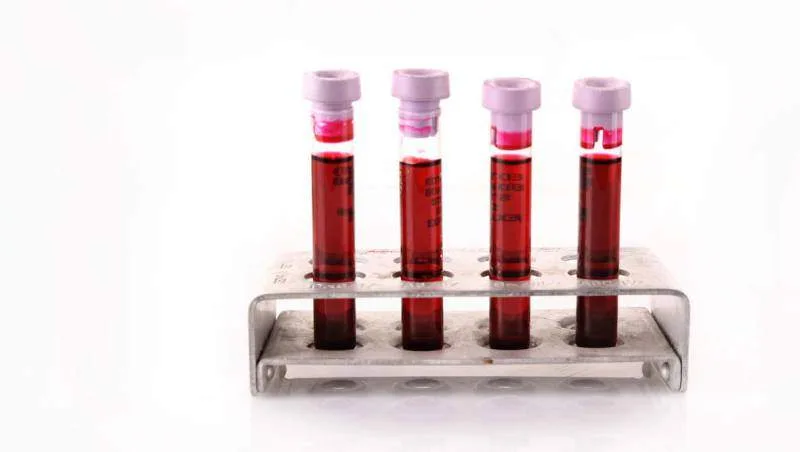When we hear about suicide and depression, we think of emotions like hopelessness, despair, and emptiness. We don’t think about blood sugar levels, thyroid problems, or lipid levels. A new study suggests that we need to take a look at glucose and the thyroid-stimulating hormone TSH.
That’s what makes this latest study so interesting. The research came from a collaboration led by the School of Nursing, Anhui University of Chinese Medicine, Hefei, China. The team looked at the association between fasting blood glucose and thyroid-stimulating hormones and suicidal tendencies and disease severity in patients with major depressive disorders.
How blood tests can help manage the risk of depression and suicide
Depression is a leading cause of disability, affecting people of all ages around the world. Tragically, a person suffering from depression is 20 times more likely to die by suicide than someone who’s not depressed (ref, as it’s often undiagnosed and therefore untreated).
Studies have also shown that people with chronic illnesses like hypertension, coronary heart disease, and diabetes have a high incidence of depression. This may be due to the long-term effects of these conditions on their quality of life. Just having diabetes can increase a person’s likelihood of both depression (including MDD) and suicide.
The connection works both ways. Patients with MDD have a higher incidence of thyroid disease. Evidence suggests that abnormal thyroid function, especially hypothyroidism, is related to the severity of depression.
When was the major depressive disorder (MDD) diagnosed?
According to Bains et al. (2023) MDD is diagnosed when an individual has:
- Persistently low or depressed mood,
- anhedonia (decreased interest in pleasurable activities),
- feelings of guilt or worthlessness,
- lack of energy,
- poor concentration,
- appetite changes,
- psychomotor retardation or agitation,
- sleep disturbances, or
- suicidal thoughts.
When MDD isn’t treated within a reasonable time, the risk of mortality increases. This is probably due to the increased risk of self-destructive behavior, substance abuse, and suicide rates.
The study
Researchers want to determine whether MDD patients tend to have abnormal blood sugar and/or TSH levels, and whether these markers are associated with an increased risk of suicide attempts. They realized that if a correlation existed, screening patients with diabetes and thyroid dysfunction could serve as an early warning system. Monitoring and treating these conditions might also turn out to be a useful addition to existing treatments.
They measured the thyroid hormones, blood glucose, blood lipids, and body mass index (BMI) of 1279 Chinese patients with MDD. These were correlated against other markers, including those for psychotic and psychological symptoms. There were some limitations, though. There was no control group, and researchers didn’t consider the influence of other factors (such as environment, income, and stress) on suicidal behavior. But the results were interesting nonetheless.
The results suggested that factors such as thyroid hormones, blood sugar, blood lipids, and BMI index can aggravate MDD and suicidal behavior. Specifically, the group of patients that displayed suicidal tendencies had higher TSH and fasting blood glucose levels than the group that did not.
Screening using a simple blood test and what it means for people with MDD
TSH and fasting blood glucose levels have the potential to assist in screening for MDD. And if you’ve been diagnosed with MDD, these tests might help your doctor predict suicidal tendencies and get you the treatment you need to stay safe and lead a more normal life.



![women [longevity live]](https://longevitylive.com/wp-content/uploads/2020/01/photo-of-women-walking-down-the-street-1116984-100x100.jpg)










